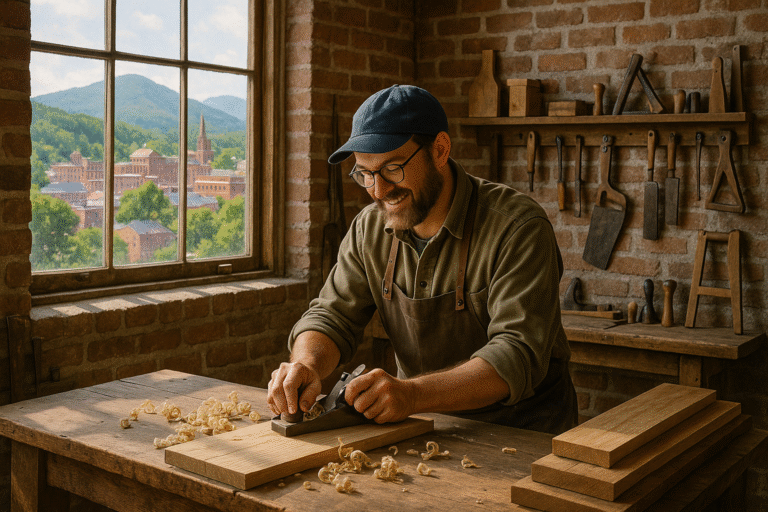The small town of Asheville, North Carolina, celebrated the reopening of the historic Asheville Craft Market, marking a significant milestone in the town’s ongoing efforts to revive local craftsmanship and support sustainable businesses. The market, which originally opened in the 1940s and closed in 2015, had been a vital part of the town’s economy and culture. In the years since its closure, local artisans and residents have been working hard to bring it back as a space for showcasing local, handmade goods in a more modern, sustainable way.
The market’s reopening was attended by over 3,000 people, including local artisans, business owners, and supporters of the town’s crafts community. The event was kicked off with a ribbon-cutting ceremony led by Mayor Esther Green, who spoke passionately about the role of small businesses in revitalizing Asheville’s economy. “Asheville has always been known for its vibrant arts community, and today, we’re not only bringing back a piece of our history but investing in the future of our creative economy,” Green said during her speech.
One of the key players in the market’s revival is artisan woodworker David Marshall, who has been working for years to promote the idea of local craftsmanship as a sustainable, eco-friendly alternative to mass-produced goods. Marshall’s handcrafted furniture was one of the first pieces to be displayed at the reopening event. “The new Asheville Craft Market isn’t just about buying beautiful items—it’s about investing in sustainable practices and supporting the people who pour their hearts into what they make,” Marshall said.
The market features a diverse range of handcrafted goods, from pottery and jewelry to home décor and organic skincare products. Many of the items are made using sustainable materials, and the artisans emphasize eco-conscious production methods. Local vendors like Jennifer Brooks, a ceramicist who specializes in minimalist pottery, expressed the impact that the new market has had on her business. “This market has created a real sense of community among us,” Brooks said. “It’s a space where we can grow our businesses, collaborate with others, and support each other as we make beautiful, handcrafted pieces.”
In addition to showcasing local artisans, the market offers workshops and educational sessions on sustainable practices, from how to upcycle materials to sustainable farming techniques. This aspect of the market has helped make it a community gathering place where people of all ages come together to learn, share knowledge, and appreciate the importance of supporting local craftsmanship.
The rebirth of the Asheville Craft Market is a testament to the resilience of small towns and the role that local craftsmanship plays in creating a unique, sustainable economy. By supporting local artisans and encouraging sustainability, Asheville is creating a future where creativity and community thrive hand in hand. As more people discover the town’s craft culture, the Asheville Craft Market is sure to be an enduring symbol of the town’s dedication to preserving its heritage while embracing a sustainable future.



